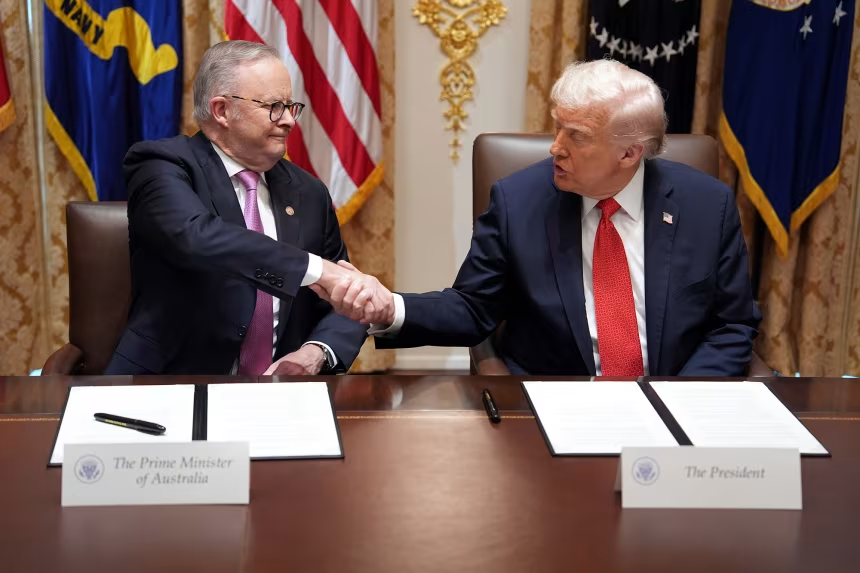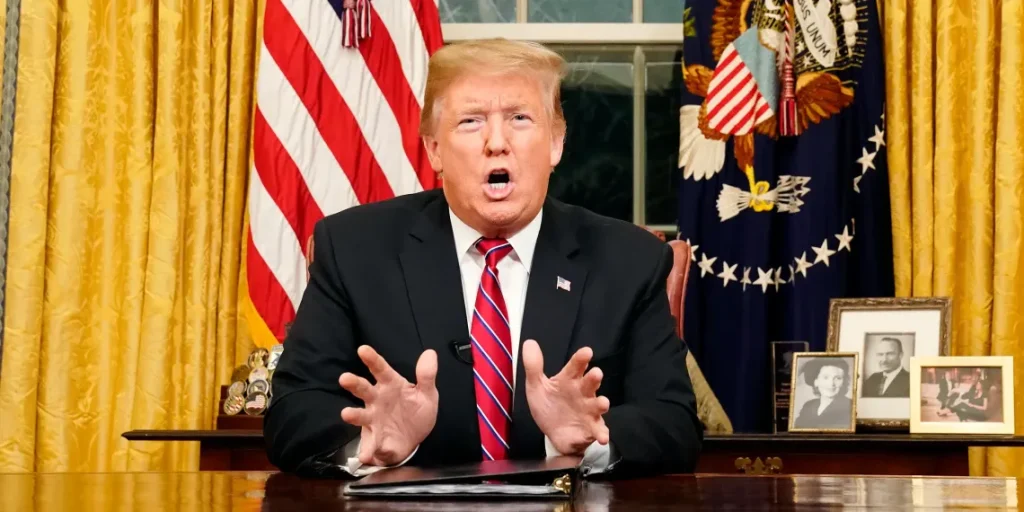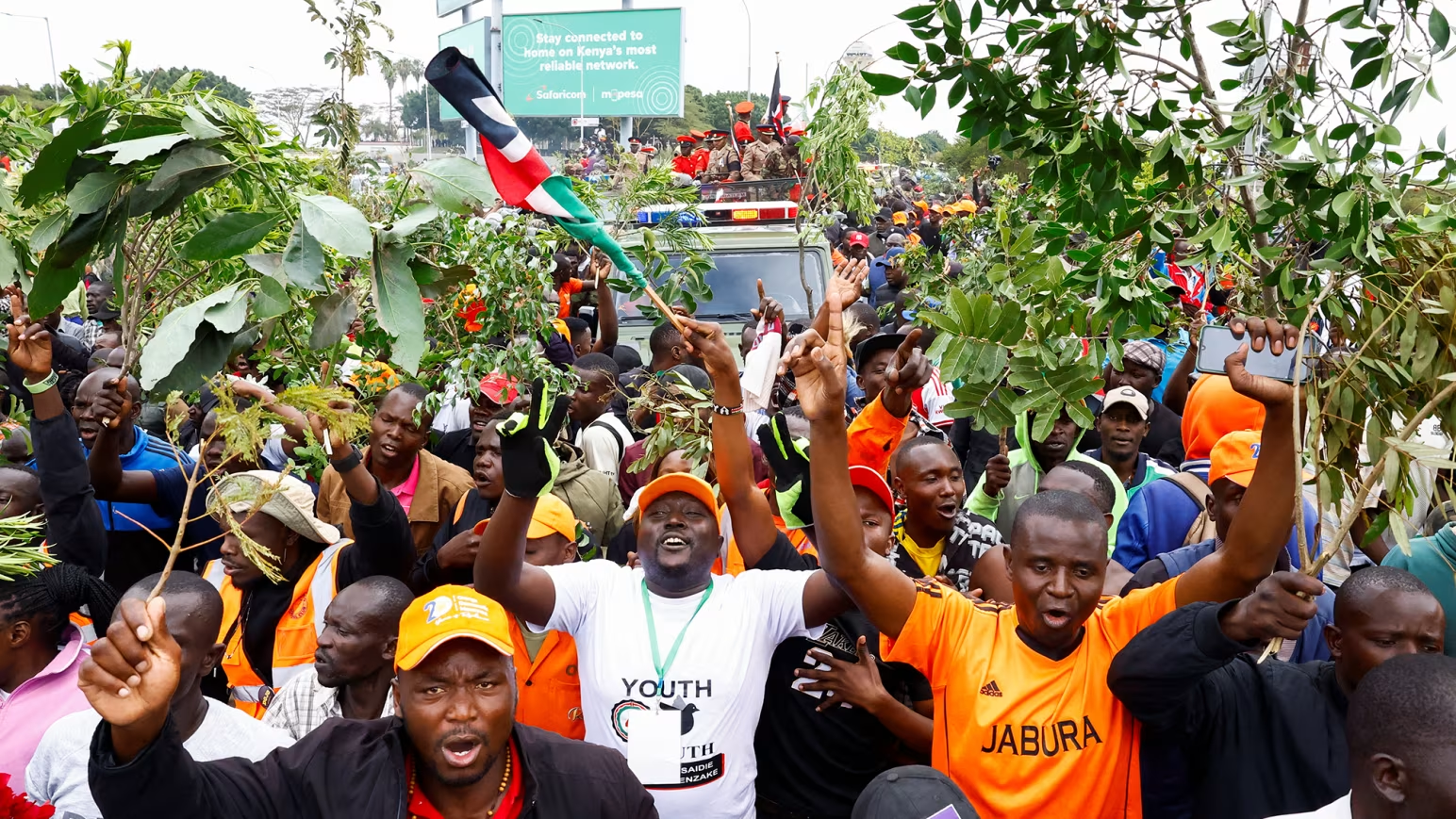Now Reading: Trump’s $8.5bn Rare Earths Deal with Australia Aims to Challenge China’s Global Dominance
-
01
Trump’s $8.5bn Rare Earths Deal with Australia Aims to Challenge China’s Global Dominance
Trump’s $8.5bn Rare Earths Deal with Australia Aims to Challenge China’s Global Dominance

US President Donald Trump has unveiled a sweeping $8.5 billion partnership with Australia designed to end China’s near-total dominance of the world’s rare earths market — a move analysts warn could take far longer than the White House anticipates.
Speaking in Washington after meeting Australian Prime Minister Anthony Albanese, Trump promised that within a year, the US would have “so much critical mineral and rare earths, you won’t know what to do with them.”
But industry experts say the president’s confidence may be misplaced. China currently refines more than 90% of the world’s rare earths — materials essential for electric vehicles, smartphones, and military technology — and reasserted that dominance this year by tightening export controls on processed minerals.
The latest restrictions rattled global supply chains and prompted Trump to threaten 100% tariffs on Chinese goods, escalating tensions between the two largest economies.
Under Monday’s agreement, Washington and Canberra plan to invest over $3 billion in critical minerals projects within six months, with projected returns valued at around $53 billion. The deal also includes a Pentagon-backed construction of a 100-metric-ton-per-year gallium refinery in Western Australia and $2.2 billion in potential financing from the US Export-Import Bank.
While the agreement signals a renewed push to diversify US supply chains, it also puts Australia in a delicate position. The country relies heavily on China for trade but has deepened defense and economic ties with Washington amid growing regional tensions.
“Australia wants to be part of the solution to global supply chain vulnerabilities,” said an Australian official familiar with the deal. “But balancing that with our largest trading partner is a diplomatic challenge.”
Despite being more abundant than gold, rare earths are expensive and environmentally damaging to refine, giving China a decades-long head start. Between 2020 and 2023, the US imported about 70% of its rare earths from China, according to the US Geological Survey.
Goldman Sachs warned that even a 10% disruption in rare earth-dependent industries could erase $150 billion from US economic output — underscoring the stakes in Trump’s high-risk bid to secure alternative sources.
Australia, home to the world’s fourth-largest rare earth deposits and half of global lithium production, is seen as a key player in reshaping the global minerals landscape.
Still, with new mines and refineries typically taking years to build, experts question whether Trump’s one-year timeline is realistic — or simply political rhetoric aimed at showcasing strength ahead of another tight election season.




